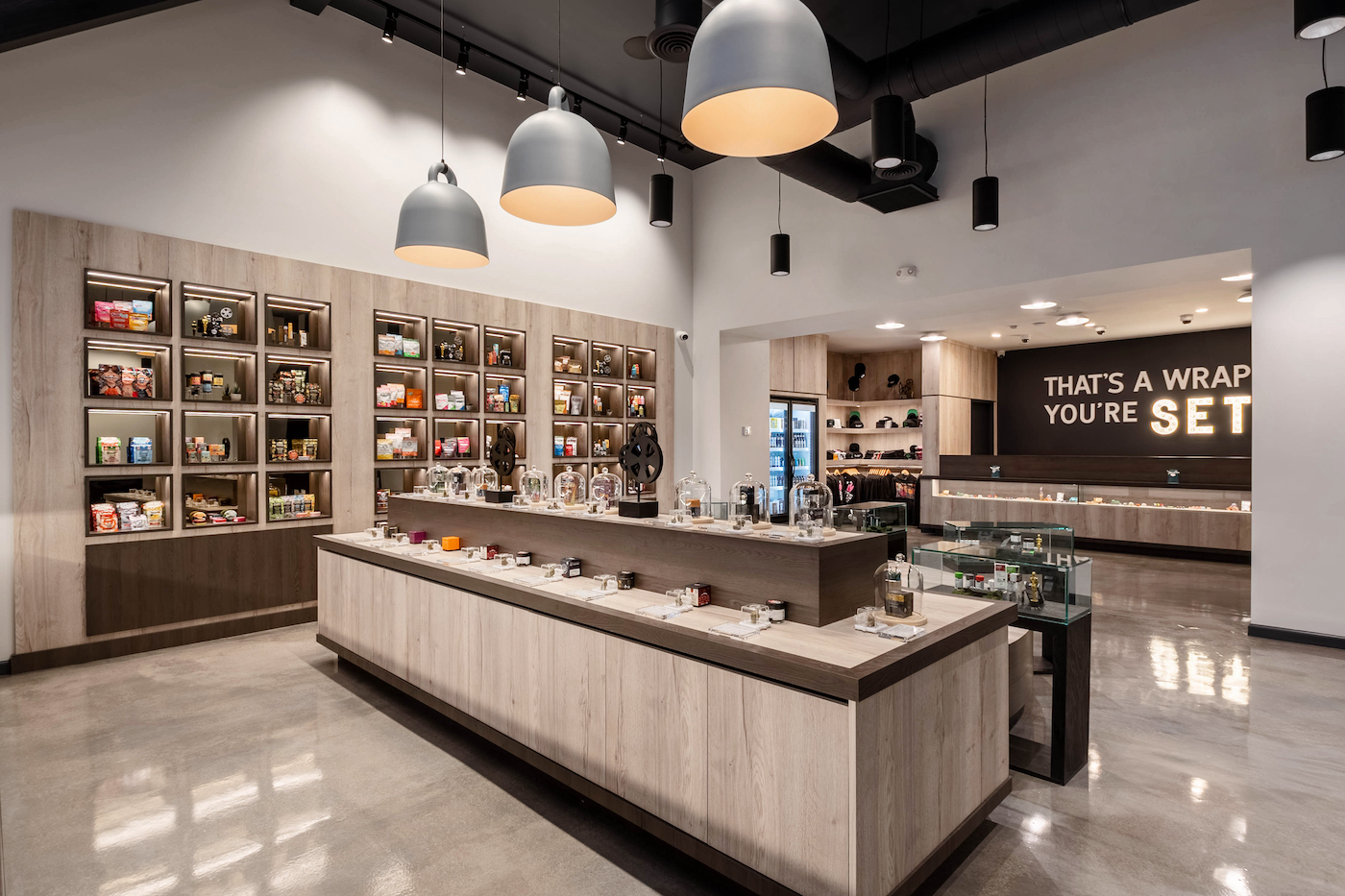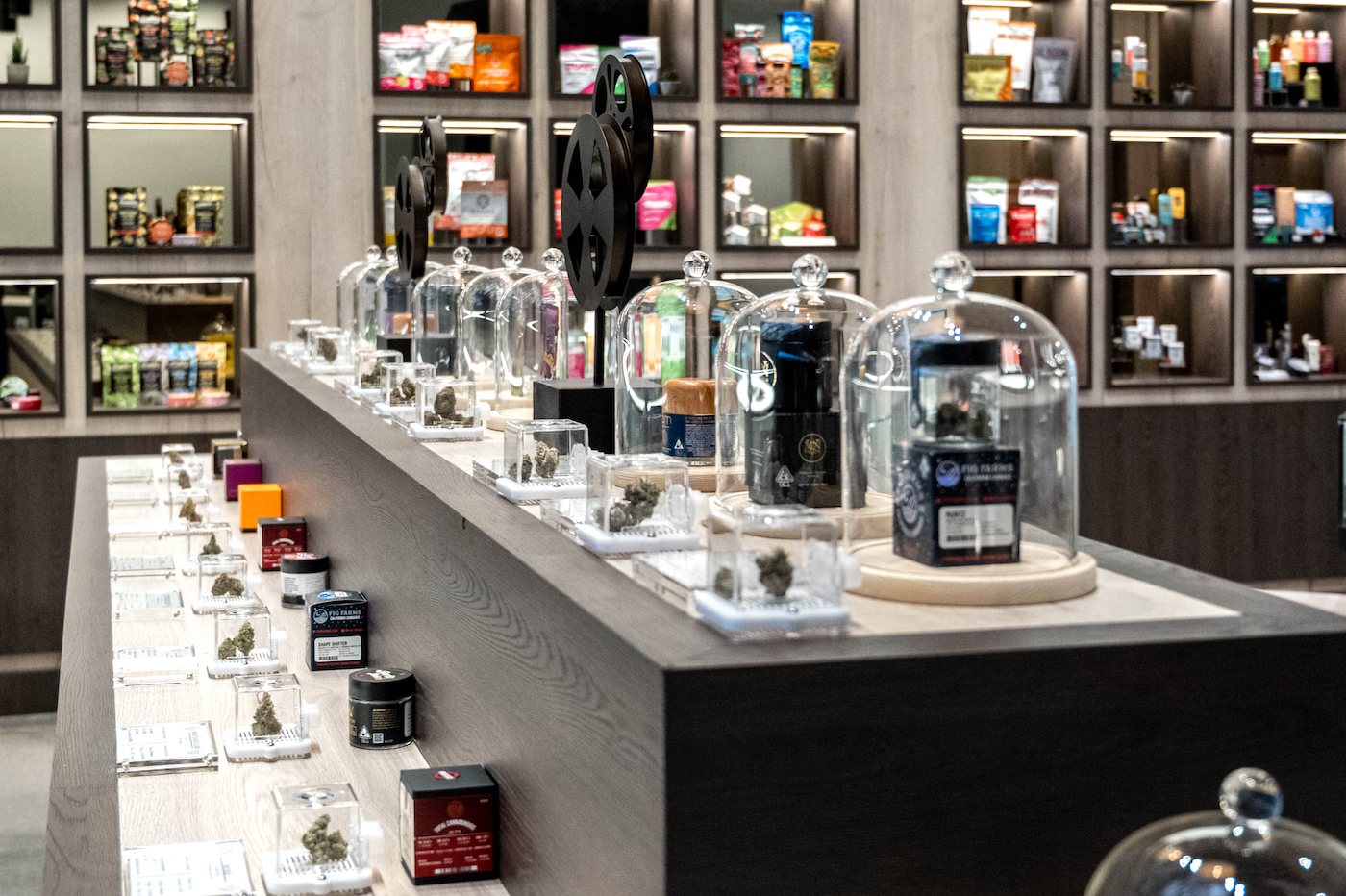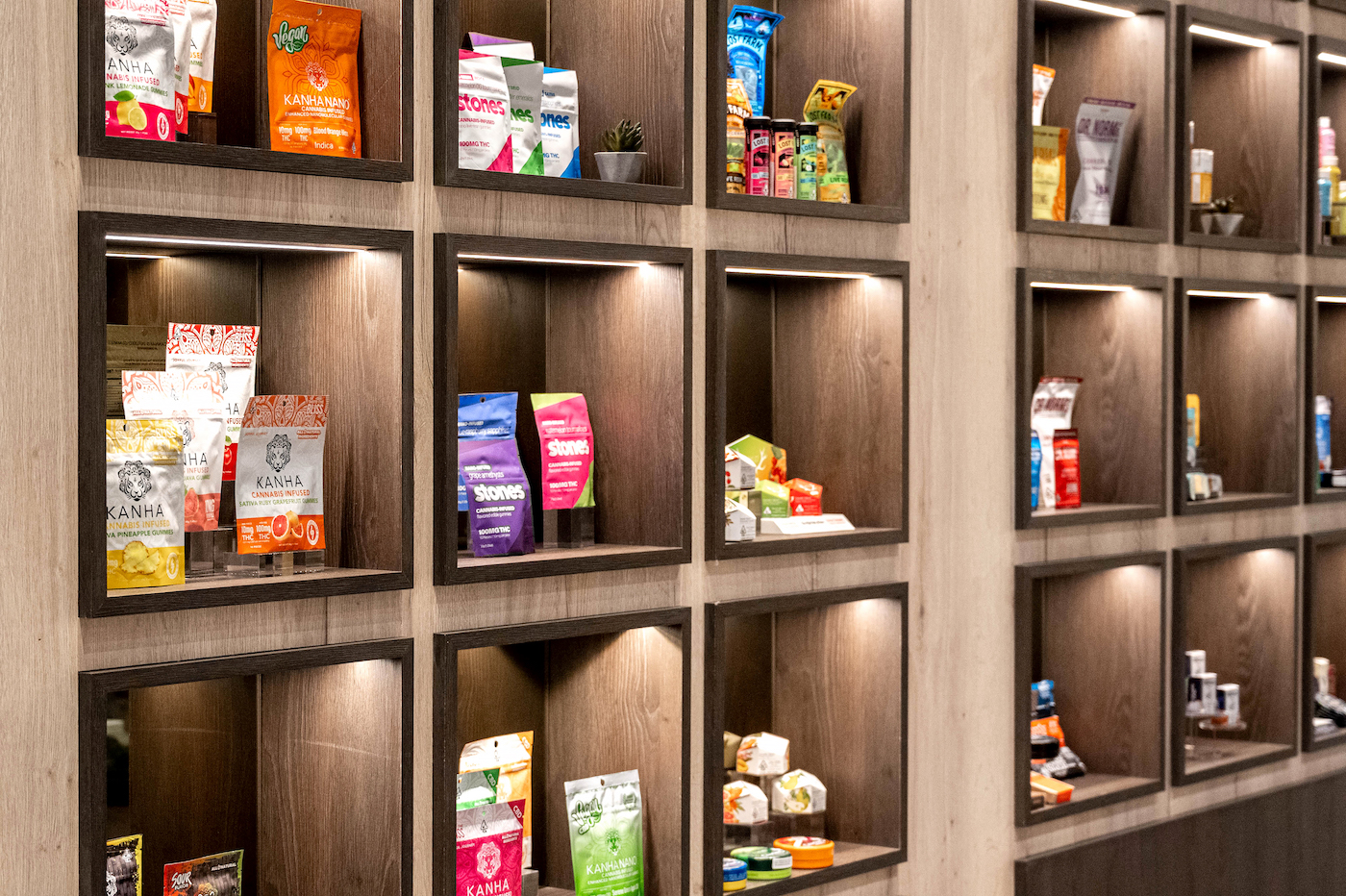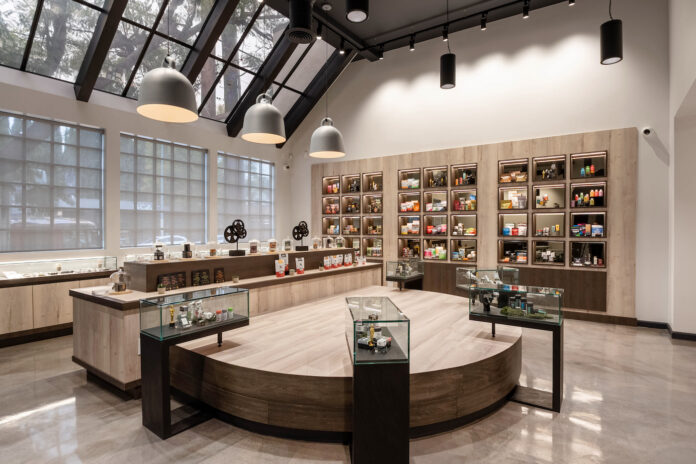As the cannabis industry matures, regulatory restrictions are becoming less stringent, paving the way for dispensaries to operate more like traditional retailers and cannabis to become a normal part of everyday activities. This situation opens the door for dispensaries to co-brand with complementary business offerings like consumption lounges, hotels, and other adjacent entities.
To adapt to changing market conditions, modern cannabis retailers are looking to other verticals for inspiration. One such vertical is hospitality, which has spent decades creating identifiable brands, curating positive customer experiences, and establishing meaningful consumer destinations.
Although the customer experience traditionally revolved solely around the transaction, today’s dispensary design prioritizes creating destinations that offer more than just sales. U-shaped retail counters and locked lobbies are fading out of popularity, while open floor plans and gallery-style designs are trending. These updated floor plans facilitate longer customer dwell times and provide more touchpoints to introduce the brand and new products.
Unlike traditional retailers or businesses within the hospitality sector, many existing dispensaries were designed with waiting rooms and buzzed entry to comply with regulations. Recent years have seen these requirements ease, and dispensaries now are redesigning their retail spaces to provide a less transactional environment.

People are accustomed to a shopping style that is personal and interactive. Though regulations can make the dispensary process feel transactional, there are ways to cultivate an engaging experience. One such strategy is by providing excellent customer service—something the hospitality sector has learned to do well.
The hospitality industry is known for crafting inviting atmospheres that promote human connectivity, starting with excellent customer service and open spaces. Following hospitality’s lead, cannabis retailers can foster more connection between customers and employees by removing the boundaries created by waiting rooms and service counters. This creates an open and inviting space while also allowing for a more casual shopping experience where consumers feel comfortable browsing products or participating in educational experiences with an employee or on their own using a variety of available technologies.
Technology already has a major influence on dispensary design. Cannabis vending machines, self-serve kiosks, and delivery drones are increasing in popularity and revolutionizing how people purchase their products. While these advancements can be great for dispensaries, poorly integrated technology can make the retail process seem impersonal.
The hospitality sector long ago integrated technology into its operations, with digital concierges or online assistance for everything from reservations to room service. Visitors can use this technology for self-guided answers and support, but hotels also offer these services in person—providing visitors with the option of a personal or virtual customer experience.
Although new consumers may prefer an employee-guided initial experience, frequent purchasers often prefer the ease and speed of a self-service digital option. Dispensaries can look to the hospitality industry for strategies that produce a positive shopping experience both in person and virtually.

Hotels are not visited only out of necessity. Rather, they have become a destination in themselves, serving out-of-town guests as well as connecting with the larger community. By offering adjacencies for their customers such as restaurants, entertainment, conference centers, and office rentals, hotels have transcended their original purpose to become community gathering places. In the same way, modern dispensaries can be successful by creating a destination that acts as a hub for the community.
Retailers can accomplish this by centering their brand around engaging parallels such as lounges, spas, yoga studios, event spaces, or other services and activities. By integrating these complementary offerings into all elements of the business, a retailer can become more than just a dispensary.
One way dispensaries can set themselves up for success is by stepping outside the boundaries of cannabis retail to identify elements that complement the business. This could be art, a tie to the community, a commitment to a particular cause, or an adjacent business or service. These elements help create a destination that is meaningful to the community, draws customers to the dispensary, and encourages people to return.

Customer loyalty can be difficult to obtain, but dispensaries can look to other industries to model their customer-retention plans. The hospitality sector builds customer loyalty better than almost any other industry, and hotels do this by ensuring consistency within the brand. Hotel brands have loyal clientele because customers know what to expect. Dispensaries must understand they cannot build customer loyalty if they are a different brand at every location. They must work to standardize their design and operations.
Dispensaries are most successful when the design is infused into the brand identity and narrative. Hospitality has done this for quite a while with themed hotels featuring highly conceptual storytelling designs that appeal to travelers worldwide. Basing the dispensary design on the brand identity also allows retailers to adapt to changing market conditions. Dispensary design that is interwoven with the brand’s story and identity is not only timeless but also more likely to attract a loyal customer base.
Virginia Maggiore, AIA, is a principal at architectural firm RDC. A licensed architect, she is responsible for developing the in-store experience and customer journey, creative strategy, visual communication, and marketing integration for retail clients. Maggiore has employed her expertise on more than fifteen retail dispensary projects for brands including Cookies and Stiizy.














[…] advocate. “The area draws a very cultural crowd. Our clientele has an interest in fashion, hospitality, and the art design […]
[…] pick up later” mentality, online ordering and self-driven sales at kiosks have taken off. The 2023 consumer is more discerning and has much more education than their 2016 counterparts, so they are shopping […]
[…] and successes to improve operations on both sides of the Atlantic. The EU can learn from the more mature U.S. market’s evolution, especially regarding cultivation techniques and trade standards in preparation for federal […]